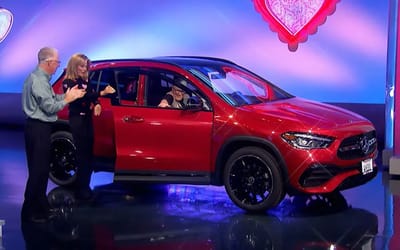How often did the Concorde need maintenance and how much did it cost?
- Concorde first flight set off in 1973
- The supersonic plan could travel from London to New York in under three hours
- The advanced technology required a lot of upkeep
Published on May 28, 2024 at 2:43 PM (UTC+4)
by Claire Reid
Last updated on May 28, 2024 at 6:54 PM (UTC+4)
Edited by
Tom Wood
Concorde set off on its first commercial flight back in September 1973 – with many believing it was ushering in a new world of incredibly fast, supersonic travel.
For context, Concorde could travel between London and New York in just shy of three hours; while a regular commercial flight takes almost eight.
Its super speeds made it a popular choice for celebrities, dignitaries, and politicians with Dolly Parton, Paul McCartney, Mikhail Gorbachev, and the late Princess Diana all climbing aboard over the years.
READ MORE! Why there’s been no commercial supersonic flights since Concorde
Musician Phil Collins even used it to travel from London to New York to perform two concerts in a single day – impressive.
Understandably, such an advanced aircraft required a fair amount of maintenance – but exactly how much may surprise you.
According to British Airways – which owned and operated seven Concorde planes – the planes required up to 57 hours of maintenance for every hour they were in the air, which is far more than your average plane.
And, of course, all those hours of maintenance came at a cost – an exceptionally high one at that.
Maintenance ran at 50 percent of the operational expenditure, for BA – to give that some context, it’s around 10 percent for a conventional airplane.

In 2003, BA was warned that the upkeep of its Concorde fleet was likely to hit £40m over the next few years.
This goes some way to explain why – after three decades and plenty of media attention – the decision was made to retire Concorde and on October 24 2003 it took its final commercial flight.
Speaking at the time, BA’s Martin George said: “Concorde has a special place in our hearts, and this a sad day for us and customers.
“The economic downturn has had a profound effect on us – we have had no choice but to ground the aircraft for good. Concorde has served us well.
“After 27 years, there will be no more flash flying beyond October.”
Somewhat interestingly, since Concorde was grounded for good in 2003, no other airlines have attempted supersonic commercial flight, with one expert suggesting the fuel-guzzling planes don’t sit well with current attitudes towards environmental issues.
DISCOVER SBX CARS: The global premium car auction platform powered by Supercar Blondie
With a background in both local and national press in the UK, Claire moved to New Zealand before joining the editorial team at Supercar Blondie in May 2024. As a Senior Content Writer working on New Zealand Standard Time (NZST), Claire was the first writer on the team to make the site’s output a slick 24/7 operation covering the latest in automotive news.




